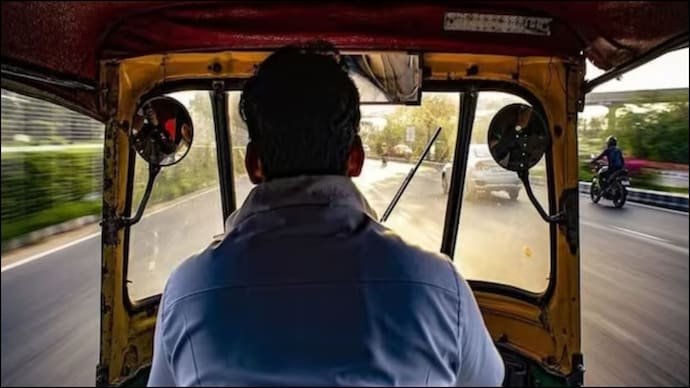Bengaluru Auto Driver’s Plight Highlights Challenges of Free Bus Rides
Introduction:
A recent video of a Bengaluru auto driver breaking down due to his meagre earnings has gone viral on social media. The one-minute clip, shared on Twitter by a user named Zavier, depicts the auto driver speaking in Kannada to a local reporter, expressing his despair over earning only Rs 40 despite long hours of work. He attributed his low income to the free bus rides provided by the Karnataka government, sparking a debate among social media users. While some sympathized with the auto driver, others pointed out instances of auto drivers refusing to cooperate with passengers in Bengaluru. This incident sheds light on the challenges faced by auto drivers and the impact of free bus services on their livelihoods.
The Auto Driver’s Plight:
In the emotional video, the auto driver can be seen in tears as he recounts his daily struggles. He explains that despite working from 8 am to 1 pm, he managed to earn a meager sum of Rs 40. This extremely low income has pushed him to the brink of despair. The auto driver directly attributes his financial hardships to the introduction of free bus rides for women by the Karnataka government. According to him, the availability of free bus services has significantly reduced the number of passengers opting for auto rickshaws, thereby negatively affecting his earnings.
Impact of Free Bus Rides:
The introduction of free bus rides by the Karnataka government was aimed at promoting women’s safety and improving accessibility for all citizens. While this initiative has undoubtedly benefited many commuters, it has inadvertently had an adverse effect on auto drivers like the one featured in the video. With the availability of free and convenient transportation options, fewer passengers are opting for auto rickshaws, leading to a decrease in demand for their services. Consequently, auto drivers are struggling to earn a sufficient income to sustain themselves and their families.
Debate and Differing Perspectives:
The viral video has triggered a debate among social media users, with opinions divided on the issue. Some viewers expressed sympathy for the auto driver, recognizing the challenges he faces in earning a living. They argue that the government should provide support or alternative sources of income for auto drivers affected by the free bus rides initiative. On the other hand, some individuals highlighted instances of auto drivers refusing to cooperate with passengers, particularly in Bengaluru. They argue that such behavior by a few drivers has led to a decline in customer trust, causing commuters to opt for other modes of transportation.
The Larger Issue:
The plight of this particular auto driver highlights a larger issue faced by many individuals working in the informal sector. Auto rickshaw drivers, in particular, often face financial instability due to fluctuating demand, rising fuel prices, and other operational expenses. While the introduction of free bus rides may have unintentionally exacerbated their difficulties, it is crucial to address the underlying challenges faced by these drivers.
Possible Solutions:
To address the concerns raised by the auto driver and others in similar situations, it is essential to explore potential solutions. The government could consider providing financial assistance, skill development programs, or alternative employment opportunities for auto drivers who are experiencing a decline in income. Additionally, efforts should be made to improve the public transportation infrastructure in Bengaluru and other cities, ensuring a balance between various modes of transport while also considering the livelihoods of those working in the auto rickshaw sector.
Conclusion:
The viral video of the Bengaluru auto driver expressing his distress over meagre earnings and attributing it to the availability of free bus rides has sparked a significant debate on social media. While the introduction of free bus services aimed to benefit commuters, it has inadvertently affected the livelihoods of auto drivers who are struggling to make ends meet.




